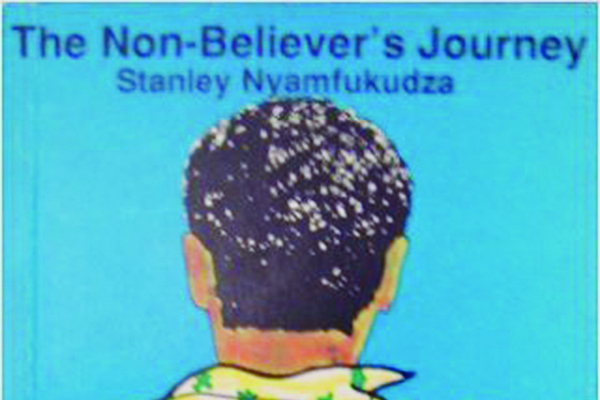
READING The Non-Believer’s Journey, I have always felt that too much weight has been placed on the protagonist Samson Mapfeka’s state of being a non-believer with little on the realities of his doubts and concerns.
Author: Stanley Nyamfukudza Title: The Non-Believer’s journey Publisher: Heinemann (1980) ISBN: 0435902334
However, a closer look at the intricacies of his life show how his perspectives were often eye-opening and beneficial to the scope of how we approach reactions to oppression and war, but especially how they affect human relationships.
The love scene in a time of war becomes compromised. Raina’s romantic involvement with a Rhodesian army soldier, if interpreted through guerilla war prism, is treasonous as it is tantamount to sleeping with the enemy.
Such a case brings out an avalanche of repercussions to her parents and even herself, when it might have been love that had developed between two young people in an unfortunate time of war.
They would be beheaded by their own as in the case of Uncle Mahachi. Sam’s viewpoint helps us unearth the reality that some young people joined the Rhodesian army because they, like everyone else, had families to feed and they wanted an income.
All this became politics of locating oneself. And it is also revealed that even if a soldier wanted to defect or resign in times like these, it was not easy because those who attempted doing so earned themselves between 20 and 30 years in prison.
And these are the same individuals who I had highlighted before that, they had a family and so, their love for their families made them not try that, for it could mean that their family would automatically become fatherless.
- Chamisa under fire over US$120K donation
- Mavhunga puts DeMbare into Chibuku quarterfinals
- Pension funds bet on Cabora Bassa oilfields
- Councils defy govt fire tender directive
Keep Reading
Love and family then become embroidered in a cobweb of treacherous and fragile ground in the time of war when a person has to follow instinct delaying death. Marki’s dilemma is one such case as he struggles to decide whether or not he will be preserved by his girlfriend.
On the other hand, war helps in bringing out the artificiality of love. Marki says that his friend ended up beating his lover after she had revealed that she could move on after he was gone.
This perspective is reinforced by Sam when he also gives a futurist perspective on love, hinting that love would not survive war, and that was to happen and realised in the dawn of independence.
Uncle Mahachi’s natural inclination to sympathise with his son lands him in the grave because life for people in war has become valueless. Maybe that also explains Sam’s death. A man could not love his son unconditionally and survive. And for that, his sons are forced to execute him and his body disposed without due cultural rites.
Mudhumeni hints that “everyone who gets his pay from the government is suspect” and so can be killed if they side with the enemy, intentionally or unintentionally. This type of relationship that then exists between Sam and Marki is a miniature model of how, as a result of war and ideological differences, the brother to brother affair was disrupted.
Interruptions of letters and all other forms of communication suffocated the flow of emotions and even deeper connections, as Sam’s father confesses that he could no longer send letters to his son, in fear of it being read before it got to its recipient if it ever was going to get there.
War disrupted the human set up and trivialised the importance of family. For Chikwepa, a family becomes a less important feature in his life in the face of war.
“I had a wife, my friend. She is probably selling herself now to pay rent,” Chikwepa recklessly hints, showing how war tore apart the social fabric.
The same is in a poem Warming Another Man’s Groin in Bvuma’s poetry anthology, Every Stone That Turns, where the persona is disgruntled: “You never understood/why I forsook the rhythms of your bottom/for the wood and steel recoils of a gun butt.” Because Raina’s brother goes to war, she is left all alone to suffer from the demands of her father. Tambu hints: “She worries too much about things” and the things that are herein referred to are the absence of a brother, a wretched past and an ungrateful father. This shows how war extended the woes of beings.
O’Flaherty (1997) describes the text as futurist in denouncing the capacity of the black forces to transcend beyond tribal differences and selfish interests in a future Zimbabwe. This claim, among the concrete evidence of a disrupted society, shows that Sam should be taken as a mirror to help see our ugly side.











